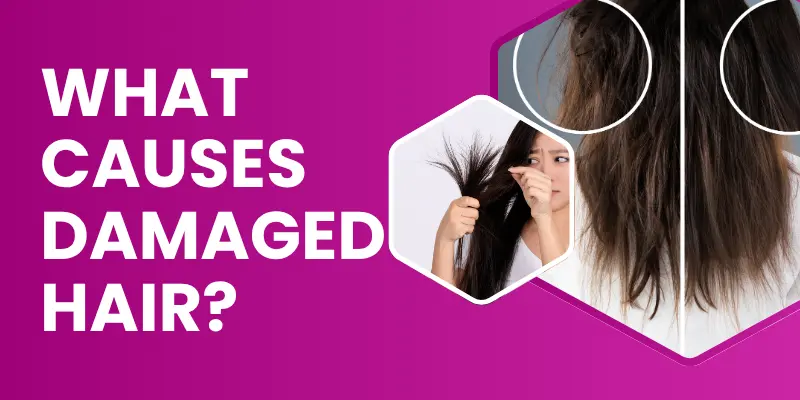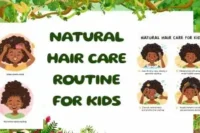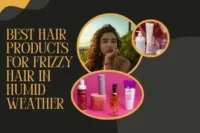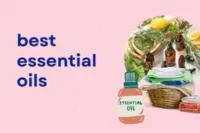Damaged Hair Care Tips to Repair and Restore Your Hair Fast
Published: 14 Mar 2025
Are you tired of battling dry, frizzy, or lifeless hair? You’re not alone! Damaged hair is a widespread concern, often caused by heat styling, chemical treatments, and environmental stressors. But don’t worry, healthy, shiny hair is within reach! This guide will share proven Damaged Hair Care Tips to repair, rejuvenate, and protect your locks. Whether you’re a hair care novice or a seasoned enthusiast, these actionable tips will revolutionize your routine. Ready to transform your hair? Let’s get started!
What Causes Damaged Hair?
Damaged hair is often caused by heat styling, chemical treatments, over-washing,

and environmental stressors like the sun and pollution.
1. Heat Styling
Frequent use of flat irons, curling wands, and blow dryers can weaken your hair.
Example: Using a flat iron daily without a heat protectant can cause serious damage.
2. Chemical Treatments
Coloring, perming, or relaxing hair strips its natural strength.
Example: Frequent bleaching can make hair brittle and prone to breakage.
3. Environmental Factors
Sun, wind, and pollution can dry out your hair and weaken its structure.
Example: Swimming in chlorinated pools can dehydrate your strands.
4. Poor Hair Care Habits
Overwashing, rough brushing, or tight hairstyles can harm hair over time.
Example: Brushing wet hair aggressively can lead to breakage. Using the Best Hair Brushes designed for detangling can help reduce damage and keep strands healthy.
Signs of Damaged Hair
How do you know if your hair is damaged? Look for these signs:
1. Split Ends
Hair ends look frayed or split into two.
Example: If your hair looks like it’s splitting at the tips, it’s time for a trim.
2. Dryness and Frizz
Hair feels rough and looks unruly.
Example: Frizz that won’t go away? That’s a sign of dryness often caused by rough hairstyles that strain and stress your strands.
3. Breakage and Thinning
Hair snaps easily or falls out more than usual.
Example: If your hair snaps when you pull it gently, it’s likely damaged.
4. Lack of Shine
The hair looks dull and lifeless.
Example: Healthy hair reflects light, but damaged hair often looks flat.
Simple Tips to Repair Damaged Hair
Discover simple tips to repair damaged hair and restore its strength, shine, and softness naturally.

Here’s how to bring your hair back to life: If your hair feels dry, weak, or breaks easily, it’s a sign it needs extra care. The good news? You can bring it back to life with some simple, consistent steps. Here’s how:
1. Trim Split Ends Regularly
Damaged ends can travel up the hair shaft and make hair look frizzy. Visit your stylist every 6–8 weeks for a trim. This keeps your hair looking neat, healthy, and free of split ends.
2. Use a Gentle Shampoo and Conditioner
Choose sulfate-free products that don’t strip your natural oils. Look for ingredients like aloe vera, argan oil, or shea butter to add moisture and softness.
3. Deep Condition Weekly
Once a week, pamper your hair with a deep-conditioning treatment. A simple DIY hair mask with coconut oil and honey can deeply hydrate and add shine.
4. Limit Heat Styling
Heat weakens hair over time. Try air-drying or using the cool setting on your dryer. If you use straighteners or curling irons, always apply a heat-protectant spray first.
5. Protect Hair While Sleeping
Discover the benefits of silk pillowcases. Switching to one can significantly reduce friction, prevent breakage, and keep your hair smooth overnight.
6. Avoid Over-Washing
Washing too often can strip away natural oils. Aim for 2–3 washes per week so your hair stays nourished and hydrated.
7. Be Gentle When Brushing
Wet hair is fragile. Use a wide-tooth comb and start detangling from the ends, working up to the roots to avoid pulling or breaking strands.
8. Stay Hydrated and Eat Well
Healthy hair starts from the inside. Drink plenty of water and eat foods rich in protein, like eggs, nuts, and fish, to strengthen hair from the roots.
9. Protect Hair from the Sun
UV rays can dry and weaken hair. Wear a hat, scarf, or use a UV-protective hair spray when spending time outdoors.
10. Rinse with Cool Water
After washing, rinse with cool water. This helps close the hair cuticles, lock in moisture, and make your hair shinier.
How to Prevent Further Damage
To prevent further hair damage, limit heat styling, choose gentle products, and keep your hair well-moisturized. Remember, prevention is always better than trying to fix problems later.

By following a few simple habits, you can protect your strands from breakage, dryness, and dullness.
1. Avoid Overloading Products
Using too many products at once may seem like it will make your hair healthier, but it can do the opposite. Heavy layers of creams, gels, and sprays can weigh your hair down, make it greasy, and cause buildup on the scalp. This buildup blocks moisture from entering the hair, leaving it dry over time. Instead, stick to a few key products that match your hair type and needs. Less is often more when it comes to healthy hair.
2. Balance Protein and Moisture
Hair needs both protein and moisture to stay strong and flexible, but too much of either can cause problems. While protein treatments help repair damaged strands, using them too often can make your hair feel hard, stiff, and brittle. On the other hand, over-moisturizing can leave hair feeling limp and weak. The secret is balance alternate between hydrating masks and protein treatments, depending on how your hair feels.
3. Tie Hair Loose at Night
Your hair is more delicate when you sleep because it rubs against the pillow, leading to tangles, frizz, and even breakage. To protect it, tie your hair in a loose braid, bun, or ponytail before bed. You can also wrap it in a silk or satin scarf, or sleep on a silk pillowcase. These smooth fabrics reduce friction and help your hair stay soft and tangle-free.
Conclusion
In this article, we’ve covered damaged hair care tips to repair and restore your locks. From trimming split ends to using gentle products and avoiding heat tools, these steps can transform your hair. I love deep conditioning and DIY coconut oil masks! Remember, consistency is key. Avoid overloading products, overusing protein treatments, or washing with hot water. Your journey to healthier, shinier hair starts now!
FAQs About Damaged Hair Care
Your hair may need more intense care than regular conditioner can give. A weekly deep conditioning mask can help add more moisture. Also, avoid hot water when washing, as it can dry hair more. Try products with natural oils like argan or coconut oil.
Sadly, once the hair splits, it cannot be fully fixed. The best way is to trim split ends so they don’t spread higher. You can use serums to temporarily smooth them, but it’s not permanent. Regular trims every 6–8 weeks help prevent them.
Wash your hair 2–3 times a week to protect natural oils. Too much washing can make damaged hair drier. Use a gentle, sulfate-free shampoo to avoid stripping moisture. Dry shampoo can help between washes.
Use a wide-tooth comb instead of a brush. Always start combing from the ends and work upward slowly. Apply a leave-in conditioner or detangling spray before combing. Be gentle to avoid more breakage.
It’s better to avoid them until your hair heals. If you must use heat, apply a heat protectant spray first.
Keep the temperature low to reduce damage. Air-drying is the safest option.
Too much protein can make hair stiff and even more breakable. Protein is good for repairing damage, but it needs balance. Alternate protein treatments with moisturizing masks. Listen to your hair — if it feels hard, use more moisture.
Over-moisturized hair feels limp, soft, and weak. It may not hold styles well and look flat. Balance with a protein treatment to make it stronger. Avoid heavy masks every day.
A hair mask is thicker and gives more intense repair. Deep conditioners are lighter and for regular use.
Masks are usually used once a week for damage. Conditioners can be used every wash.
Yes, oils can protect and nourish damaged hair. Coconut, argan, and olive oils are great choices. Use a small amount to avoid greasy buildup. Apply mostly to the ends, not the scalp.
Wear a hat or scarf when in the sun. UV rays can dry and weaken your hair. After swimming in chlorine or salt water, rinse and condition. Use leave-in products with UV protection.

- Be Respectful
- Stay Relevant
- Stay Positive
- True Feedback
- Encourage Discussion
- Avoid Spamming
- No Fake News
- Don't Copy-Paste
- No Personal Attacks

- Be Respectful
- Stay Relevant
- Stay Positive
- True Feedback
- Encourage Discussion
- Avoid Spamming
- No Fake News
- Don't Copy-Paste
- No Personal Attacks





